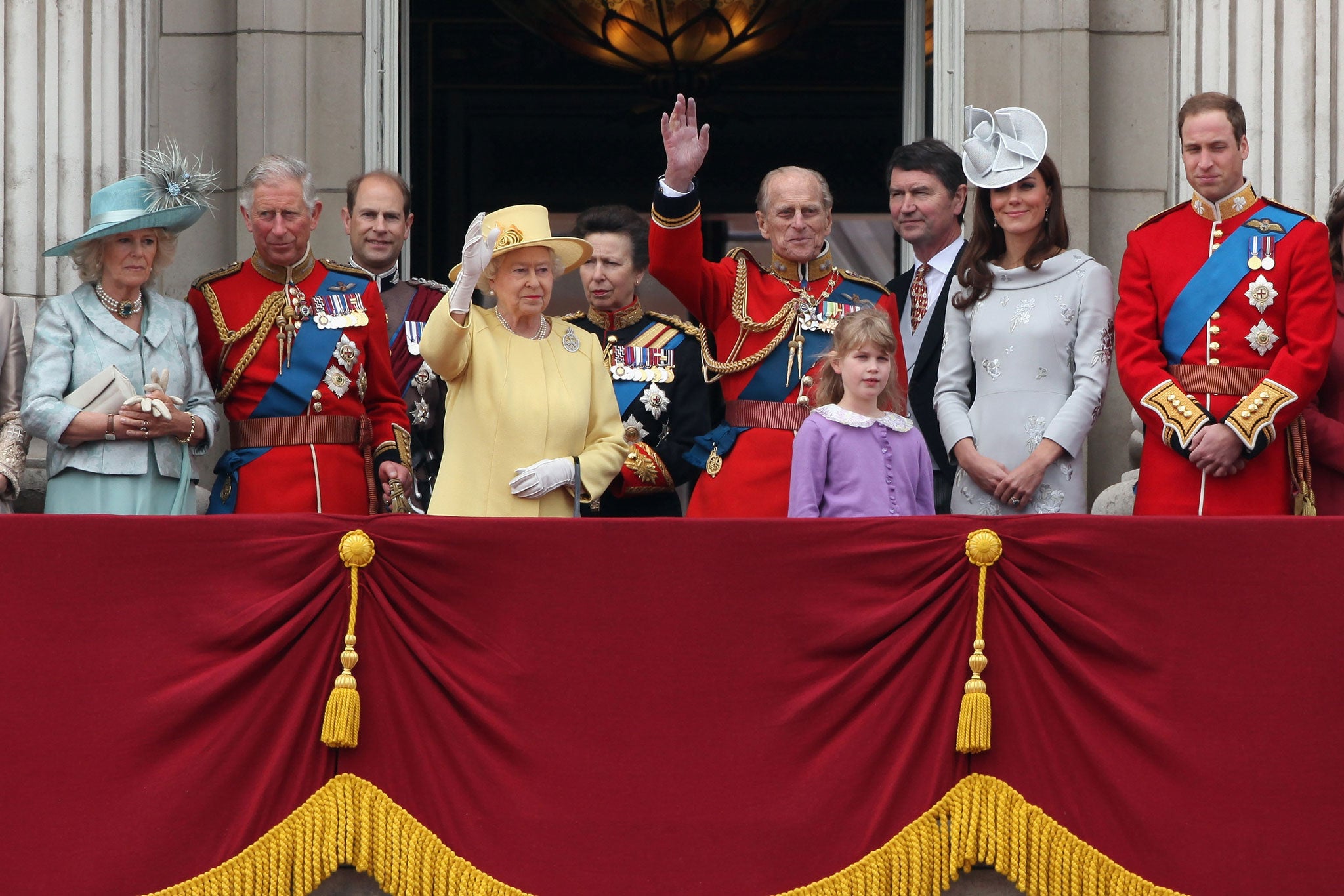Prescott on the Queen, Mantel on Middleton: Why are we only now starting to criticise the royals?
Exactly when was it decided that these people are immune from genuine criticism, as opposed to light-hearted jokes or servile worship?


Your support helps us to tell the story
From reproductive rights to climate change to Big Tech, The Independent is on the ground when the story is developing. Whether it's investigating the financials of Elon Musk's pro-Trump PAC or producing our latest documentary, 'The A Word', which shines a light on the American women fighting for reproductive rights, we know how important it is to parse out the facts from the messaging.
At such a critical moment in US history, we need reporters on the ground. Your donation allows us to keep sending journalists to speak to both sides of the story.
The Independent is trusted by Americans across the entire political spectrum. And unlike many other quality news outlets, we choose not to lock Americans out of our reporting and analysis with paywalls. We believe quality journalism should be available to everyone, paid for by those who can afford it.
Your support makes all the difference.How strange our monarchical system of governance would appear to voyagers from a superior planet: we appoint, revere and spend lavish sums of money on perfectly mediocre human beings for no reason other than their birth and marital status.
When attempts are made to examine this baffling situation, a flurry of fierce patriots does all it can to maintain the status quo; it isn't quite “To the dungeons” any more but the echoes are still audible.
John Prescott is the latest of the Queen's lowly subjects to be spattered with the putrid eggs of public disapproval. On Sunday he called monarchical infallibility into question by suggesting that the Queen ought perhaps to abdicate on account of the frailty of her bowels. In making this perfectly reasonable suggestion Prescott seemed to be leaping somewhat enthusiastically onto the bandwagon because in recent months much ink has been spilled over a spate of mild criticisms directed toward the Royal Family: first and most widely reported was Hilary Mantel's “venomous attack” on Kate Middleton; Danny Boyle went on to commit treason by suggesting that in place of a monarchy we ought perhaps to have an elected head of state, proffering J.K. Rowling – steady now – as a candidate; then Sandi Toksvig had the gall to imply that Kate Middleton is famous not for her intellect but her world-famous husband and hospitable womb. Who do these intelligent, honest, forward-thinking people think they are?
I'm not going to revisit the tabloid mauling Mantel was given over her typically studied critique of our perfumed princess, other than to make one observation. When the tidal wave of indignation broke over the author's words the coverage took two forms: first, predictably, came the Daily Mail's reactionary screams for Mantel's head on a spike (one comment under this article: “A mean, malicious and extremely vicious and foul person … A plague on her”); then, more interestingly, emerged a range of intelligent pieces pointing out that Mantel wasn't criticising Middleton but, rather, the absurd cage-like culture in which she lives and is judged.
'No, honestly,' various columnists were at pains to tell their readers, 'the target wasn't the monarchy, it was the nasty old press'. But here's the question begged by that defence: who says that they're mutually exclusive? Why can't one, as Mantel clearly did, criticise the monarchy and its hideous treatment in the tabloids? No sooner had an easier target been found than it seemed preposterous that an intelligent person, unprovoked, would slander a royal. Exactly when was it decided that these people are immune from genuine criticism, as opposed to light-hearted jokes or servile worship? Louise Mensch condemned as “shrieking lefties” anyone who sought to defend Mantel against the backlash to which she was subjected; it's worth pointing out here that when Louise Mensch attacks you, you've been gifted a very reliable indication that what you're doing is right.
If the opinions of the monarchy are not in fact important, as some pointed out, for what reason are these people monarchy?
I agree with Mantel in that we ought not treat royalty like pandas, as it is not entirely their fault that the system is so arranged; but there is ample space in which to question and hold to higher intellectual account both the individuals and the system of government to which we seem to have resigned ourselves. We currently do little but fawn at their scented feet or remark upon their bowel movements – neither is symptomatic of a healthy discourse. In absolutely no sphere of life should one be told that it is admirable to live as, or admire, a mute and opinionless symbol onto whom others project imagined qualities. If Mantel et al. have managed to elicit dialogue about – and indeed from – the Royal Family, the acres of press coverage will not have been in vain.
Where the monarchy could be taking interesting, brave stances on major world issues, opening doors to valuable dialogue and discussion, they tend instead to offer the blandest of smiles and most generic of platitudes. As Patrick Strudwick writes in a characteristically fine article, the Queen has never even said the word 'gay' in public – and is probably (my view now) only vaguely aware what it means. She could, for example, with one fell swoop have made a genuinely courageous statement by including in the Commonwealth Charter an actual reference to sexuality, rather than shying away from controversy.
Regardless of the light in which their actions are cast, the monarchy seem doomed to be by definition devoid of any real opinion, let alone idiosyncrasy. But if we are granted insight into how they actually feel about significant issues – that, for example, the Queen might actually quite like to retire – the realisation may dawn on the general public that the minds that hold such great sway over our nation are imperfect, human and utterly pedestrian. Once this realisation has had time to sink in, we would either be simply better-informed or we would have an uprising on our hands. Either would be fine.
Join our commenting forum
Join thought-provoking conversations, follow other Independent readers and see their replies
Comments